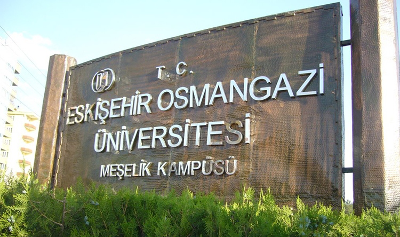Title:
Smart Functional and Nanomaterials: Innovations and Applications in Engineering
Date:
July 25th, 2025 (UTC +3)
Organizer:
Biomedical Engineering Department, Engineering and Architecture Faculty, Eskişehir Osmangazi University
Symposium Chair:
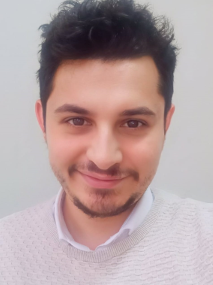
Dr. Ömer Burak Istanbullu
Personal Bio:
Dr. Omer Burak Istanbullu is an Assistant Professor and department vice chair of Biomedical Engineering Department at Eskisehir Osmangazi University. After studying in the field of biomedical engineering and specializing on tumor segmentation from magnetic resonance images at Erciyes University, he then pursued a Master's program at Istanbul Technical University and Erciyes University with the scope of biomaterial-medical imaging device compatibility. Following the Master's degree, he received a Ph.D. from Erciyes University, in the field of biocompatibility improvement of implantable intravascular biomaterials using biomimetic surface modification approaches. Dr. Istanbullu is experienced in the development and improvement of biocompatible materials using biomimetic approaches, combining the computational methods and experimental analysis to achieve the most effective solutions for the challenges related to biomaterials. His research interests include surface modification by biomimetic approaches, diamond-like carbon and carbon nanotubes, electrochemical, thermal and mechanical characterization of biomaterials, anticorrosive and biocompatible surface development. The overall goal of Dr. Istanbullu through his work is contributing to the development of new and innovative biomaterials that have the potential to reduce the biomaterial-based risks in the field of biomedical engineering.
Call for Papers
Background:
The field of bioengineering has witnessed remarkable progress in the development of biomaterials that can interact dynamically with biological systems. Traditional biomaterials were designed primarily for structural support; however, the emergence of smart biomaterials has revolutionized biomedical applications by enabling real-time responses to physiological changes. These materials, often incorporating nanotechnology and bioactive agents, have been employed to enhance tissue regeneration by promoting cell proliferation and differentiation. Furthermore, smart biomaterials have been integrated into drug delivery systems to achieve controlled and targeted therapeutic effects, reducing systemic side effects and improving patient outcomes.
Despite their potential, challenges such as biocompatibility, long-term stability, and regulatory concerns remain significant hurdles. Addressing these challenges requires a multidisciplinary approach that combines materials science, biotechnology, and clinical expertise.
Goal/Rationale:
The primary objective of this symposium is to address key challenges in the design and application of smart biomaterials for tissue regeneration and drug delivery. One of the critical issues in regenerative medicine is the need for biomaterials that can effectively mimic the extracellular matrix, provide structural support, and enhance cellular interactions. Recent advancements in hydrogel-based biomaterials, shape-memory polymers, and bioactive ceramics have shown promising results in improving tissue repair and regeneration.
Similarly, in drug delivery, there is a growing demand for systems that can deliver drugs with high precision to the specific target region, minimizing toxicity while maximizing therapeutic efficacy. Smart biomaterials incorporating stimuli-responsive mechanisms have demonstrated potential in this regard by enabling localized and sustained drug release in response to specific biological triggers.
This symposium aims to bring together researchers and practitioners to discuss these innovations, identify gaps in current knowledge, and propose strategies for translating these materials into clinical applications. Through interactive discussions, participants will explore how emerging technologies, such as 3D bioprinting and nanotechnology, can further advance the field.
Scope and Information for Participants:
The symposium will cover a wide range of topics related to smart biomaterials, including but not limited to:
- Design and fabrication of biomaterials for tissue engineering
- Stimuli-responsive materials for regenerative medicine
- Biodegradable and bioactive scaffolds for tissue regeneration
- Controlled and targeted drug delivery systems
- Nanotechnology applications in smart biomaterials
- 3D bioprinting and biofabrication strategies
- Clinical translation and regulatory considerations
This symposium is intended for researchers, engineers, clinicians, and industry professionals interested in advancing the use of smart biomaterials in healthcare. Participants will have the opportunity to present their research, engage in collaborative discussions, and gain hands-on experience with emerging technologies. By fostering interdisciplinary collaboration, this symposium aims to accelerate the development of innovative solutions for tissue regeneration and drug delivery, ultimately contributing to improved patient care and medical outcomes.
Topics:
The main topics of this symposium are listed below.
Functional Materials
- Advanced Materials and Technologies
- Advanced Materials Processing and 3D Printing
- Advanced Nanomaterials and Graphene
- Biomaterials
- Electric and Magnetic Materials
- Emerging Materials
- Energy Materials
- Glasses, Ceramics and Composites
- Material Mechanics and Structure
- Material Thermodynamics
- Metal and Alloy
- Optic and Acoustic Materials
- Polymer Science and Engineering
- Semiconductors and Super Conductors
- Smart Materials and Structures
Meanwhile, submissions aligned with the overall conference theme are also welcome.
Civil Engineering
- Bridge Engineering
- Cartography and Geographic Information System
- Computational Mechanics
- Disaster Prevention and Mitigation
- Environment-Friendly Construction and Development
- Geological Engineering
- Heating, Gas Supply, Ventilation and Air Conditioning Works
- Monitoring and Control of Structures
- Reliability and Durability of Structures
- Seismic Engineering
- Structural Engineering
- Structural Rehabilitation, Retrofitting and Strengthening
- Surveying Engineering
- Tunnel, Subway and Underground Facilities
- Water Supply and Drainage Engineering
Transportation Engineering
- Carrier Operation Engineering
- ITS Theory and Applications
- Low-carbon Transportation Technology
- Modern Logistics System Planning and Optimization
- Road and Railway Engineering
- Transportation and Social Economic Development
- Transportation Planning, Construction and Operation Organization
Energy Engineering
- Alternative Fuels
- Hydroelectric and Geothermal Power
- Integrated Energy Systems
- Nanotechnology Applications
- Nuclear Materials and Fuels
- Solar Cell Technology
- Solar Electricity and PV Applications
- Solar Thermal Applications
- Machine Design
- Mechanical CAD/CAM
- Mechanical Power Engineering
- Mechanical Dynamics
- Integrated Manufacturing
- Advanced Intelligent Mechatronics
Submission:
Prospective authors are kindly invited to submit full papers that include title, abstract, introduction, tables, figures, conclusion and references. It is unnecessary to submit an abstract in advance. Please submit your papers in English.
Each paper should be no less than 4 pages. One regular registration can cover a paper of 6 pages, and additional pages will be charged. Please format your paper well according to the conference template before submission. Paper Template Download
Please prepare your paper in both .doc/.docx and .pdf format and submit your full paper by email with both formats attached directly to [email protected]
Important Dates:
| Process | Date & Time |
|---|---|
| Submission Deadline | July 18, 2025 |
| Symposium Date | July 25, 2025 |
| Notification of Acceptance | 7-20 workdays |
Publication:
Accepted papers of the symposium will be published in Advances in Transdisciplinary Engineering (ATDE) (Print ISSN 2352-751X), and will be submitted to EI Compendex, Conference Proceedings Citation Index (CPCI), Crossref, CNKI, Portico, Engineering Village (Inspec), Google Scholar, and other databases for indexing. The situation may be affected by factors among databases like processing time, workflow, policy, etc.
Publication info
Title: Advances in Transdisciplinary Engineering (ATDE)
Press: IOS Press
ISSN: 2352-751X, 2352-7528 (electronic)
This symposium is organized by CONF-FMCE 2025 and it will independently proceed the submission and publication process.
* Please note that the publication policy may vary between different publishers. For details regarding the publication process, kindly refer to the policies of the respective publisher.
Highlights
The symposium successfully convened leading experts and researchers to engage in dynamic discussions on the latest advancements in smart biomaterials for tissue regeneration and drug delivery. With a focus on interdisciplinary collaboration, the event fostered valuable exchanges across materials science, biotechnology, and clinical applications. Notably, the presentations on “Nanotechnological Approaches to Probiotic Delivery Using Next-Generation Biopolymers” by Ms. Başak Adamoglu and “Biopolymers in Drug Transportation Systems” by Ms. Ceren Göç contributed significantly to the discourse by highlighting innovative strategies for enhancing therapeutic outcomes through biopolymer-based technologies. The symposium successfully achieved its goal of addressing current challenges, including biocompatibility, precision targeting, and regulatory considerations, while also highlighting the transformative potential of stimuli-responsive systems and nanotechnology. Overall, the event marked a meaningful step forward in translating emerging smart biomaterials into clinically viable solutions, paving the way for improved patient care and advanced biomedical applications.
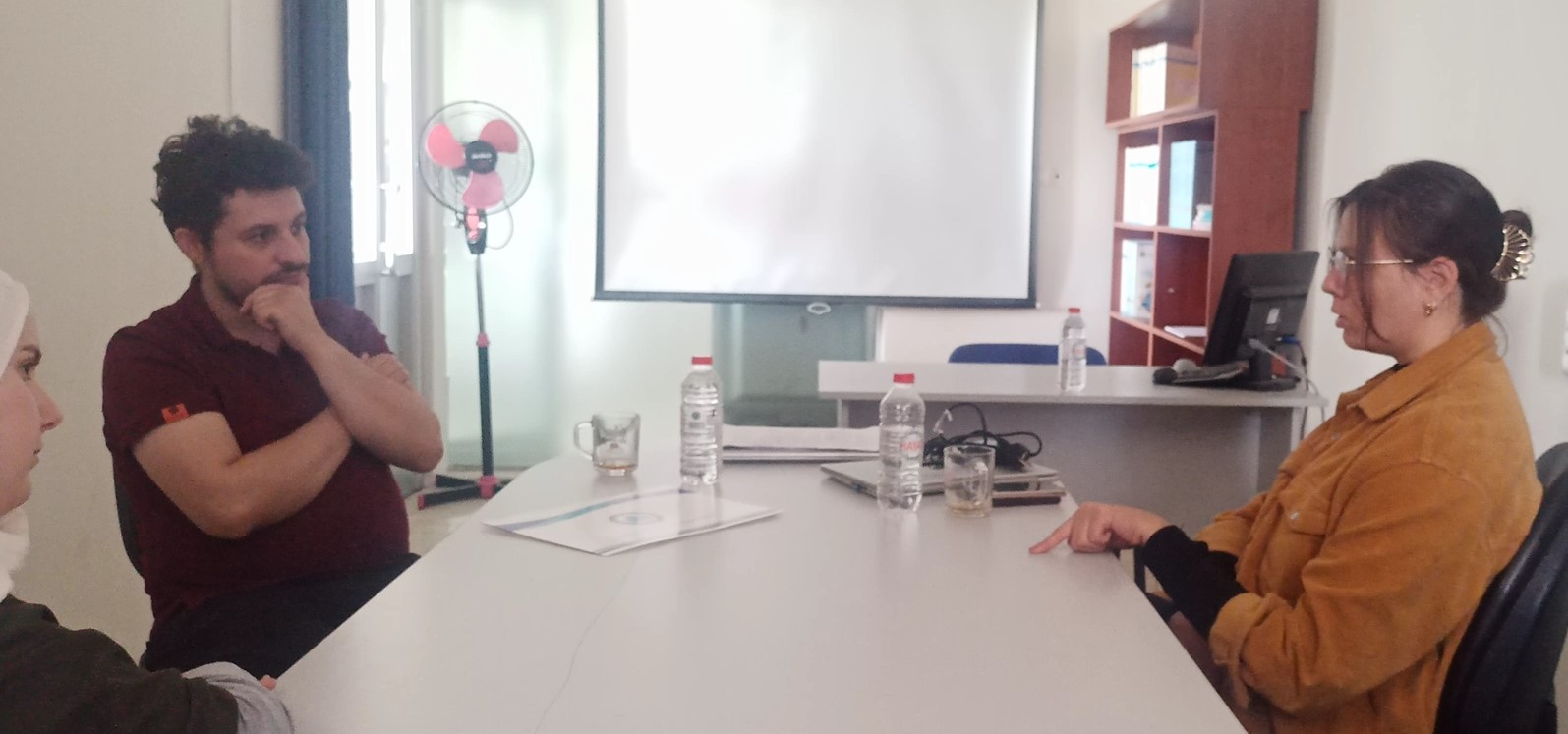
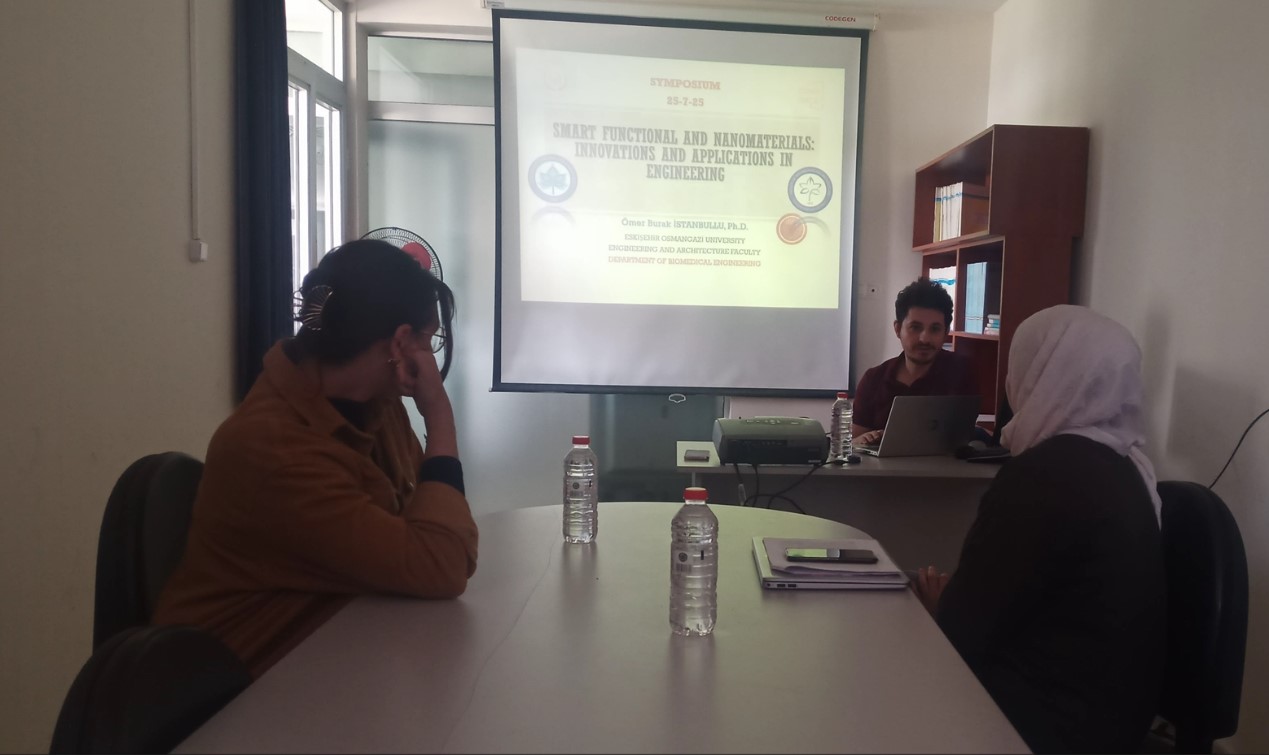
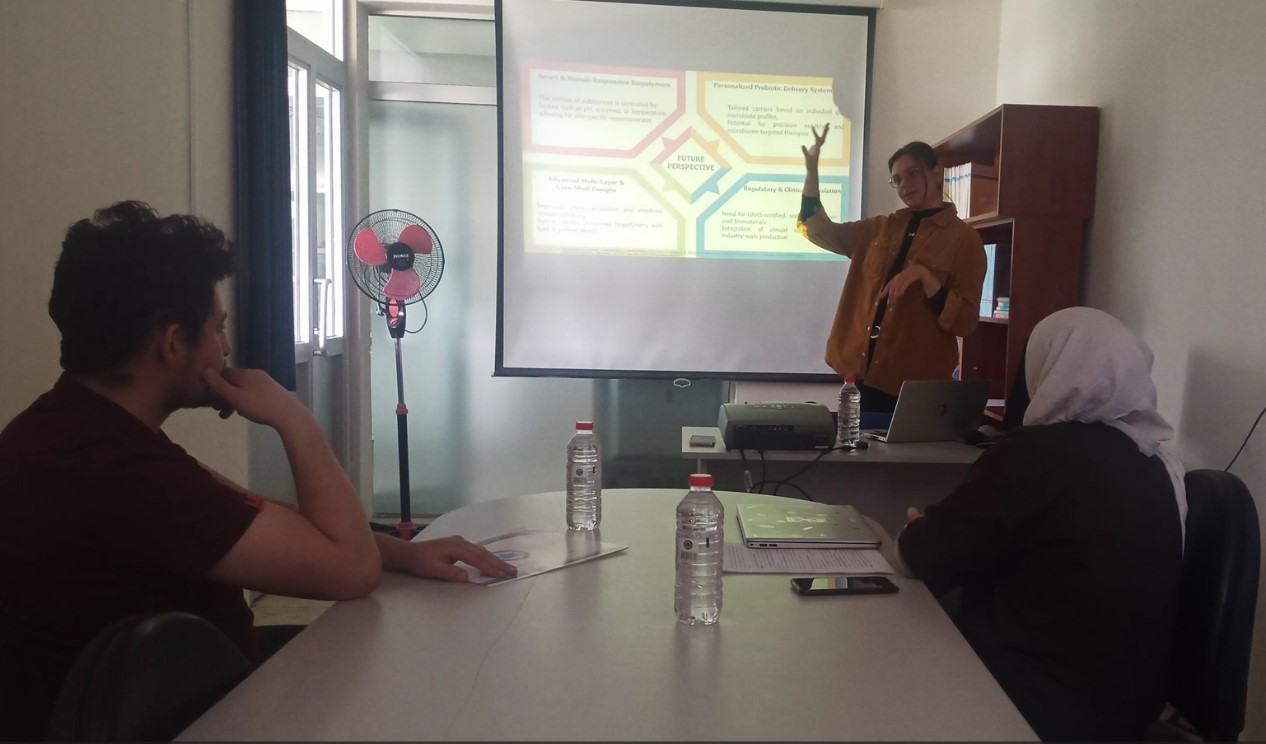
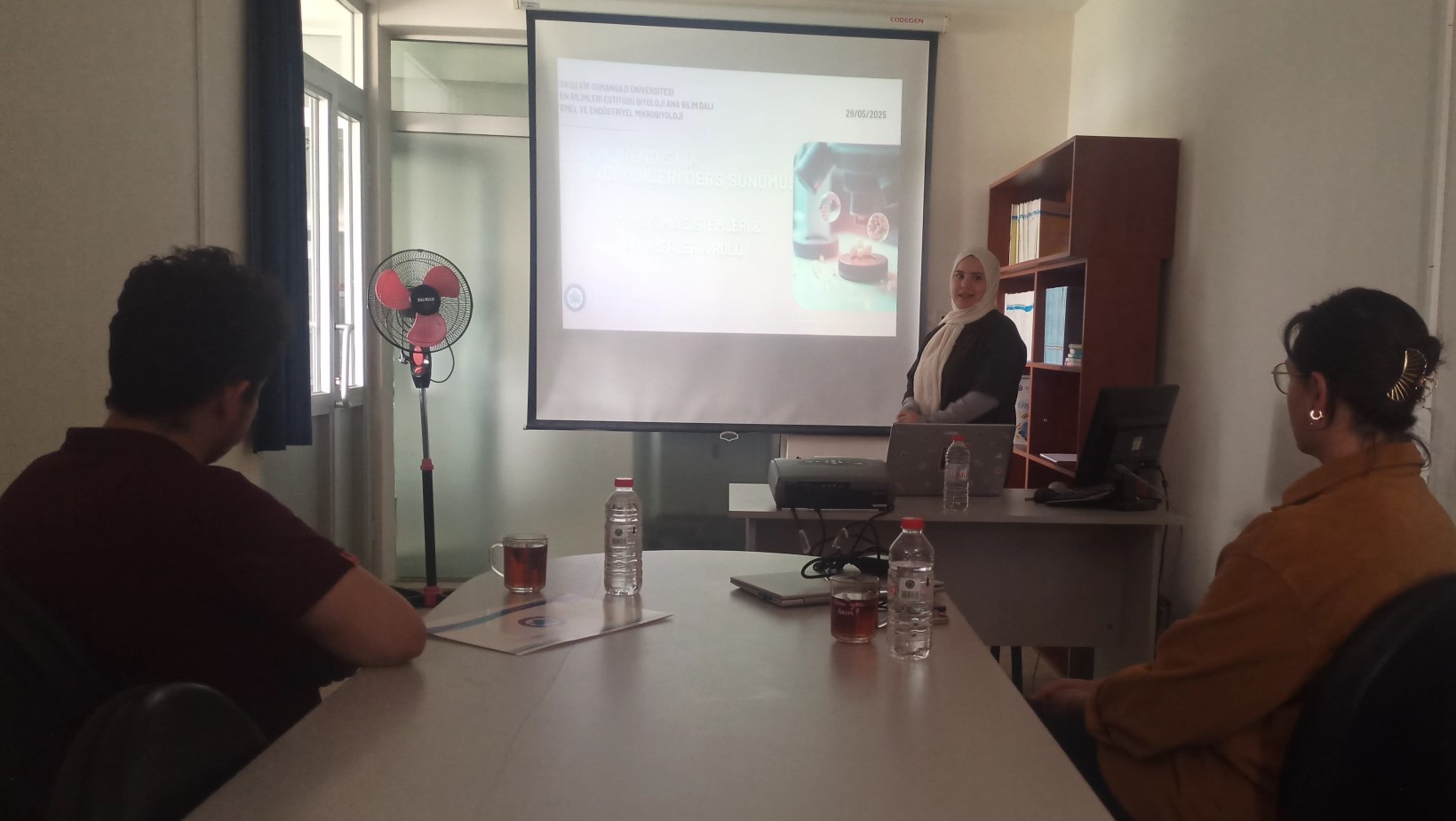
Access to Symposium: CONF-FMCE 2025 Symposium -- Eskişehir - YouTube
Ways to Participate
Venue:
Büyükdere Meşelik Yerleşkesi, 26040 Odunpazarı/Eskişehir, Turkey
Attend in Person:
If you want to attend the symposium on-site, please email [email protected]. The symposium seats are limited. Both contributors and non-contributors who wish to participate in the symposium in person need to apply to the symposium organizers.
VISA:
Welcome to GOV.TRVisitors who are not exempt from entry visa must obtain their visas or schedule an appointment with the Turkish Consular offices via Pre-Application System for Turkish Sticker Visa ( www.visa.gov.tr ). The applicants who meet the requirements will be directed by the Pre-Application System for Turkish Sticker Visa to the e-Visa system ( www.evisa.gov.tr) In those countries where Türkiye does not have a consular representation can also use online scheduling for appointments with the nearest accredited consular office of Türkiye.
- In order to avoid inconveniences that may be caused by delays in processing, it is recommended to apply for visas at least one month in advance before the planned travel.
- The visas submitted to foreigners do not guarantee absolute rights of entry to Türkiye.
- Visa fees are not refundable in cases where applications are rejected
- All applicants are required to have a medical insurance that will be valid during their stay in Türkiye.
- The length of stay provided by visa or visa exemption cannot exceed 90 days within each 180 days. The regulation of 90 days of stay within the last 180 days is binding for all foreigners that will travel to Türkiye.
- It is not possible for foreigners holding two passports to stay in Türkiye for 90 days each with their two different passports within the last 180 days.
- In all types of visa applications, Turkish consular offices may issue visas with a maximum duration of stay of 90 days. The foreigners who wish to stay longer than 90 days in Türkiye, should apply for "Short Term Residence Permit" at the Provincial Directorate of Migration Administration in order to extend their residence.
- The residence permit of the foreigners will be cancelled if they stay outside Türkiye for longer than 120 days in total during the last year.
- For United Nations (UN) Travel Document (Laissez-Passer) holders who have blue UN travel documents, visa exemption with 90 days length of stay within the preceding 180 days may apply during their official visit to Türkiye if they can certify their official assignment. Red UN Travel Document holders, shall be exempt from entry visa and may stay in Türkiye 90 days within the preceding 180 days regardless of their purpose of visit. General visa provisions shall apply for Blue UN travel document holders subject to regulations specified according to their country of origin.
- Visa applications for travels except for touristic or trade purposes (work or study etc.) will need to obtain visa through Turkish Representations in the abroad.
- Regardless of the visa regime applied towards the citizens of a country, the travel document holders of that country need to obtain visa from Turkish missions beforehand.
- Any applicant under the age of 18 must submit official written approvals from both parents. For those applicants who certify that their parents are officially divorced and prove the parent holding their custody as well as for those with one parent deceased, visas may be issued in accordance with their purpose of visit.
- The authorization of processing the residence permit applications submitted by the following persons who enter Türkiye availing visa-free regime and without requirement of obtainment of Student Visas lays with Local Immigration Offices (Provincial Directorates of Migration): Foreigners who arrive in Türkiye upon invitations by universities under Turkish Higher Education Board to study at the associate, undergraduate, graduate, post-graduate, Ph. D levels pursuant to international student exchange programs, cultural programs as well as under EU Education and Youth Programs.
- For foreigners wishing to enter Türkiye via naval ports with touristic purposes, visa-free entry permits may be issued by the local governorates. These permits shall have a maximum 72 hours duration of stay and will be only valid for sightseeing purposes in the vicinity of naval ports where they entered the country. This practice, as it intends to facilitate entry for those visitors subject to visa, does not entitle visitors to visa. Passports of these visitors are not retained by the border authorities; however, visitors are given "Harbor City Entry Permit" which is required to be returned to the authorities upon their exits.
- Any piece of data submitted here may be processed and stored in database accessible to the relevant Turkish authorities in accordance with their respective mandates.
Tourist Visa
- If an invitation letter is submitted for a Touristic Visa application, it must include the inviting person's TR Identity Number, clear identity, the list of invitees, permanent address, contact number, length and purpose of stay and the affinity with the applicant must be stated in the letter. If the inviting side is an organization or a company, tax registration certificate of the organization will be required. In the invitation letter it is also required for the inviting person/authority to pledge for covering victuals and accommodation expenses and for taking their own responsibility. The applicant is required to have sufficient and/or regular remunerations.
